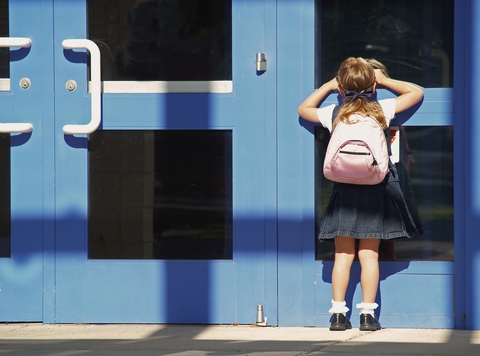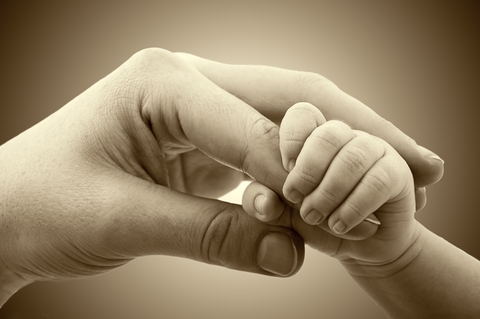We will discuss the child custody issues in a divorce.
Common Patterns After Divorce
In Japan, the mother traditionally raises minor children when a couple divorces. Divorced fathers rarely see their children.
The sole custody system still exists in Japan. After a divorce has been finalized, either the father or the mother has sole custody of the children.
In most divorces, the mother gets custody and parental authority, and the father does not get visitation rights.
Removal of Children
Japanese wives often disappear with their children when their marriages deteriorate.
Due to the principle of continuity, the party who lives with their children is likely to obtain child custody following a separation between a couple.
The child’s living environment should remain the same based on the child’s welfare.
As a result, removing the child is an effective method of obtaining custody and control of the child.
Child removal is not a criminal case.
In Japan, it is not uncommon for parents to take their children without the other parent’s consent. In the case of international divorce, an arrest warrant may be issued by an overseas government, but the arrest will not occur in Japan.
It is not a criminal case, and exaggerated allegations of domestic violence or abuse can justify the parental abduction of a child in Japan.
Characteristics of Sole Custody
In countries with sole custody laws, such as Japan, custody after divorce is awarded to either the father or the mother. (Custody and parental authority may be granted separately in exceptional circumstances.)
As a result, many divorce cases in which parents fight intensely for custody of their children. Those parents who do not have custody and parental authority may have visitation rights following a divorce. Visitation agreements, however, are often not adhered to in many cases.
Moreover, there is a tradition that parents who do not live with their children after divorce rarely see them again.
In general, custody is awarded to the person who can provide the children with better benefits. The following criteria must be met:
- Custody is awarded to the parent who has been with the child longer.
- Mothers are given custody automatically in principle.
- Custody is awarded to the parent with greater financial resources.
Adultery is not directly relevant to the custody determination since it is a marital issue.
“Children prevent couples from divorcing,” says a Japanese proverb. Children will never see the other parent again after a divorce.
Parental Authority and Custody
It is possible to separate parental authority from custody. Parental authority refers to the right and obligation of a parent to protect, supervise, and educate a child regarding their status and property. Custody refers to a child’s right to live with and care for him or her daily.
Children can be in the custody of one party and the parental authority of the other after a divorce.
Visitation Rights
A parent who does not have custody of a child can have visitation rights with the child.
However, the visitation system does not necessarily function as intended due to the lack of penalties for parents who ignore their visitation rights.
This is why divorcing couples often fight for custody of their children.
Divorce System In Japan
In Japan, you can divorce with mutual consent, which can be done immediately at city hall. There is no need to go to divorce court.
Since the courts do not intervene in divorce cases in Japan, many divorces do not result in proper decisions regarding custody, visitation rights, property division, and other aspects of the divorce.
When one party desires a divorce, and the other does not, the case proceeds to mediation and divorce lawsuit. It is necessary to establish a cause for divorce in such cases.
The following are the official reasons for divorce.
- Infidelity
- The act of malicious abandonment
- For three years, the living status is unknown
- A mental illness that is unlikely to recover
- Reasons that make it difficult to continue the marriage
Adultery is the most common cause of divorce. Adultery-related lawsuits are also frequently filed to recover alimony.
There is a great need for PIs in Japan to investigate infidelity because it is directly related to grounds for divorce and alimony claims. As a result, Japanese PI agencies are primarily engaged in infidelity cases. According to reports, 70 percent of the work of a typical Japanese PIs consists of the investigation of infidelity.
Infidelity Investigations And No-Fault Divorce System
In civil cases in Japan, proof of infidelity is subject to strict rules.
The Japanese courts do not consider one-time acts of infidelity valid grounds for divorce and recommend that the couple remain married.
- Two or more instances of adultery
- Visiting a love hotel exclusively for sexual purposes
- The evidence of a stay must exceed one hour if the site is a business hotel or one party’s home.
If chatting couples stay at a business hotel, they may excuse that the two parties were having a business meeting. Some male defendants have obtained medical certificates from clinics that he is impotent and deny sexual activity. Clinics sometimes produce a medical certificate for the convenience of the patient at the patient’s request.
In this environment, Japanese detectives strive to collect evidence that meets the above conditions in infidelity investigations.
Incidentally, the no-fault divorce system, which has become mainstream in Western countries, shows no sign of spreading in Japan. If this system becomes widespread, the need to prove grounds for divorce will no longer be necessary, and the need for infidelity investigations may drastically decrease.
Custody Issues And Infidelity
The issue of infidelity has no direct bearing on the custody dispute, as was noted previously.
The most common cause of divorce, however, is adultery. Consequently, evidence of adultery is often used as a bargaining chip to force the parties to negotiate custody.
You can negotiate more effectively if you know the embarrassing truth about the other party.
Investigation Of Financial Situation
In a child custody dispute, the financial situation of both parents is compared.
In child custody disputes, investigations of the employers and assets of the wife’s side from whom the children have been taken are often conducted. If the subject does not voluntarily disclose his or her asset situation, the detective agency often undertakes an asset investigation.
On the other hand, in many cases, the wife conducts investigations of the husband’s employment and assets in the event of divorce, not only because of a child custody dispute but also because of issues related to property division and child support.
Cases Of Japanese Entertainers
In the context of the Japanese situation described above, divorce and custody disputes involving Japanese entertainers and celebrities are model cases.
An ex-female idol celebrity in her 30s was involved in another case of infidelity and child abduction gossip in late 2022.
Despite her husband’s suspicions, she kept going out at night. Her husband allegedly took evidence of her infidelity.
Assuming they would divorce, the husband separated from his wife and their child. She has denied infidelity, and a divorce and custody dispute is pending.
In Japan, a dispute over custody of children automatically favors the mother’s (wife’s) parental rights. The husband’s side is at a disadvantage in custody disputes. Consequently, the children were taken by the husband’s side, and the couple separated.
As a result of mediation, a temporary custodian was designated, and their daughter has since been placed under the mother’s custody.
Since she is an entertainer, she may have an advantage in terms of financial power over her husband. The father’s side is unlikely to gain custody or control of the child in light of this trend.
Transition To Joint Custody System
Recently, some have suggested that without a joint custody system, parent-child disconnection due to divorce would occur more frequently and would not be good for the welfare of the children. In addition, parents who take their children away from them tend to make them shell out high child support payments in exchange for allowing visitation. Some criticize this as “holding the child hostage for ransom.”
Summary
The above has explained the issues of divorce, child custody disputes, and adultery in Japan from a comparative perspective outside of Japan.
The comparisons with other countries for Japanese nationals will help them better understand the Japanese system. For non-Japanese, it will help them objectively understand the current state of the Japanese system.




